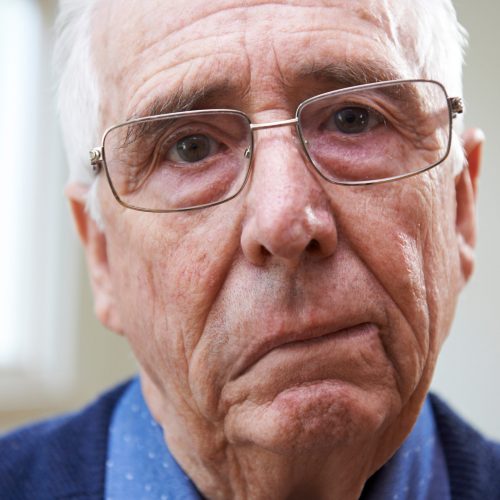About Our Stroke Program:
NCD has been a pioneer in the DFW area, setting up the stroke program within Texas Presbyterian Dallas over 20+ years ago. Throughout the years, NCD has led the Dallas area in creating the Dallas Area Stroke Council as well as having physicians maintain the stroke programs at Texas Health Presbyterian Dallas Hospital and Medical City Dallas hospital. We are committed to providing excellent care, informing the community about prevention through control of risk factors, and finding new ways of treating and preventing stroke through research. We also provide diagnosis and treatment of stroke and other vascular neurology disorders in our outpatient clinic.

Our Stroke & Vascular Neurology Team:
While all of our physicians diagnose and treat stroke and other vascular neurology disorders, we have a few physicians that specialize in this area.
A vascular neurologist specializes in caring for people with cerebrovascular problems. This includes the blood vessels in the brain and spinal cord. Vascular neurologists diagnose and treat many cerebrovascular diseases and events, including: Inherited Stroke Disorders, Ischemic Stroke, Stroke, Transient Ischemic Attacks (TIAs), Cavernous Malformation, Carotid Artery Disease, Brain Aneurysm, Arteriovenous Malformation (AVM), Dural Arteriovenous Fistula (DAVF), Hemorrhagic Stroke.
Regardless of if you have already had a stroke, or meet the criteria to potentially have a stroke, and are being seen in our office, your physician will do a number of tests you’re familiar with, such as listening to your heart and checking your blood pressure. You’ll also have a neurological exam to see how a potential stroke/or previous stroke is affecting your nervous system. This will include reflexes, walk tests, eye tests, cognitive testing, etc. However, there are diagnostic tests that may be performed as well.
Blood tests: You may have several blood tests, including tests to check how fast your blood clots, whether your blood sugar is too high or low, and whether you have an infection.
Computerized tomography (CT) scan: A CT scan uses a series of X-rays to create a detailed image of your brain. A CT scan can show bleeding in the brain, an ischemic stroke, a tumor or other conditions. Doctors may inject a dye into your bloodstream to view your blood vessels in your neck and brain in greater detail (computerized tomography angiography).
Magnetic resonance imaging (MRI): An MRI uses powerful radio waves and magnets to create a detailed view of your brain. An MRI can detect brain tissue damaged by an ischemic stroke and brain hemorrhages. Your doctor may inject a dye into a blood vessel to view the arteries and veins and highlight blood flow (magnetic resonance angiography or magnetic resonance venography).
Carotid ultrasound: In this test, sound waves create detailed images of the inside of the carotid arteries in your neck. This test shows buildup of fatty deposits (plaques) and blood flow in your carotid arteries.
Echocardiogram: An echocardiogram uses sound waves to create detailed images of your heart. An echocardiogram can find a source of clots in your heart that may have traveled from your heart to your brain and caused your stroke.
Once you enter the ER, our physicians will work quickly to diagnose the type of stroke you may be having and the ability to give you IV medication to break up the clot. Therapy with drugs that can break up a clot has to be given within 4.5 hours from when symptoms first started if given intravenously. The sooner these drugs are given, the better. Quick treatment not only improves your chances of survival but also may reduce complications.
An IV injection of recombinant tissue plasminogen activator (tPA) — also called alteplase (Activase) — is the gold standard treatment for ischemic stroke. An injection of tPA is usually given through a vein in the arm with the first three hours. Sometimes, tPA can be given up to 4.5 hours after stroke symptoms started.
This drug restores blood flow by dissolving the blood clot causing your stroke. By quickly removing the cause of the stroke, it may help people recover more fully from a stroke. Your doctor will consider certain risks, such as potential bleeding in the brain, to determine if tPA is appropriate for you.
Our team of experts understand that having any vascular condition is very frightening and frustrating. Your doctor will talk with you and family members about your concerns and to learn more about your lifestyle, personality, work habits, medical history, and overall health. We also team up with your primary care physician or other specialists to understand the types of medications, symptoms and treatments you’ve had throughout the years to distinguish a proper treatment plan. We will monitor your progress and symptoms, as well as short and long term affects from any vascular event. Your physician may order outpatient neurorehabilitative therapy to help recover from some of the effects of your vascular event. They will also order follow-up testing to monitor progress and/or prohibit the chances of having a future event.
Team Approach Care
At NCD, you will receive personalized care from a team led by fellowship-trained neurologists who specialize in stroke/vascular and many other specialists who collaborate to give you the best care possible. Your stroke/vascular care team may include:
- Neurocritical care neurologists [Hospitalists]
- Specially-trained nurse practitioners
- Physical, occupational and speech therapists trained in neuro care
- A clinical research team
- Medical Assistants trained in neuro care
- Neuro pharmacists
- Neuroscience social workers
- Neuropsychologists
- Psychologists

Contact Us
We’re here to answer any questions in order to make your appointment easier.
Find a Specialist
Learn more about our fellowship-trained specialists!
NCD Testing Center
Learn more about the testing available for seizures in our Neuro Testing Center.

